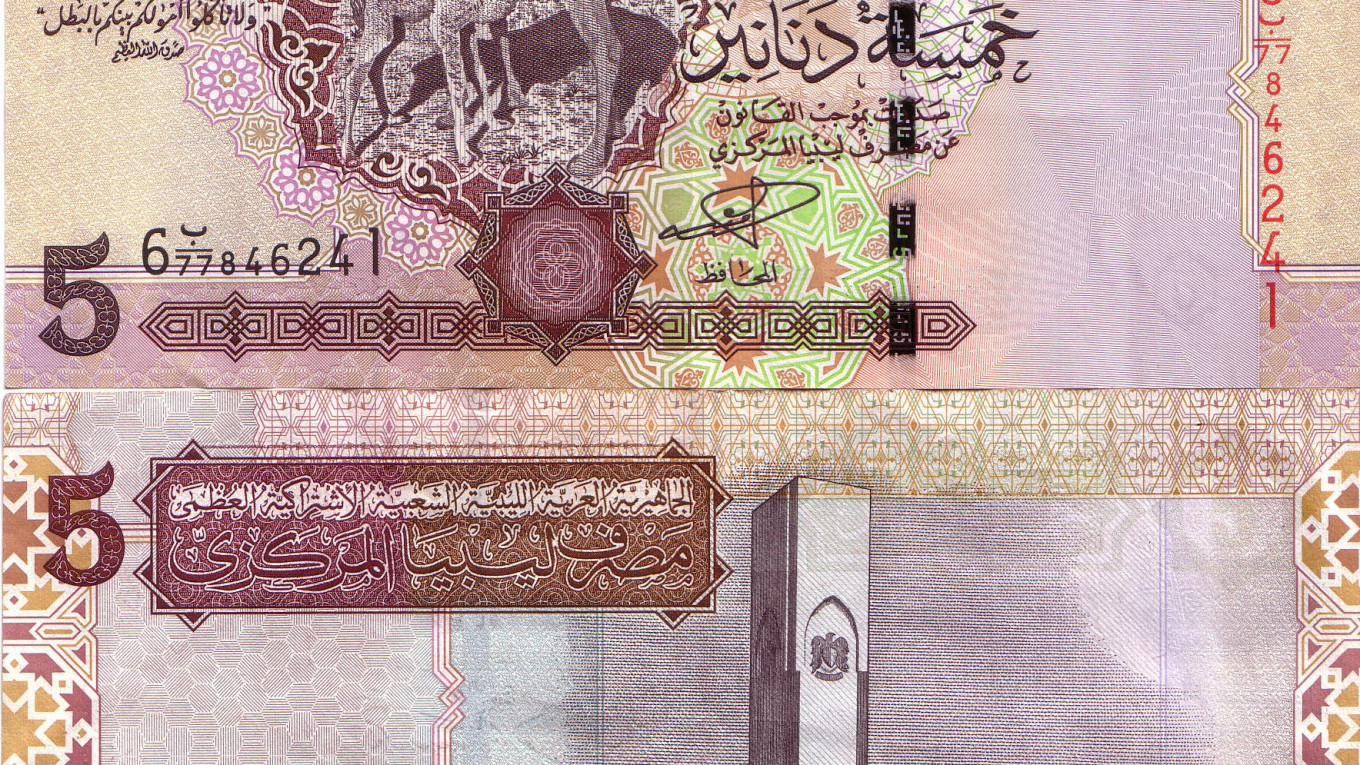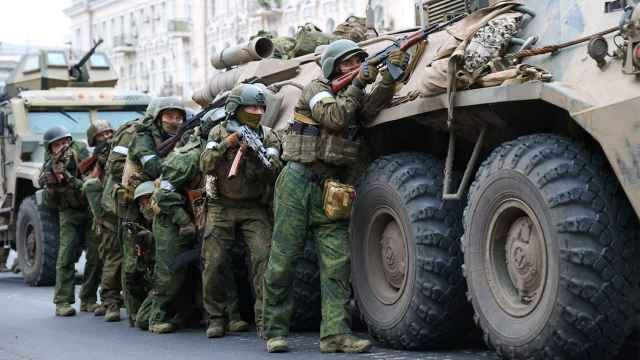A parallel central bank in eastern Libya stepped up deliveries of new banknotes from Russia this year, before and after eastern-based commander Khalifa Haftar launched a military offensive to capture Tripoli, Russian customs data show.
The data obtained by Reuters shows nearly 4.5 billion Libyan dinars ($3.22 billion) were dispatched in four shipments from February to June. Haftar launched his campaign in early April.
The new banknotes appear to push the total quantity of dinars ordered from Russia since 2016 well above the 10 billion previously acknowledged by eastern officials, and underscore the dependence of eastern factions on the deliveries.
Libya has been split between rival camps based in Tripoli and the east since 2014, a result of the divisions that surfaced when Muammar Gaddafi was overthrown in a NATO-backed uprising three years earlier. The eastern camp has set up competing branches of the country's main institutions.
In an increasingly internationalized conflict, Haftar has received political and material backing from several foreign powers, most prominently the United Arab Emirates and Egypt.
Russia has also provided Haftar with support, while simultaneously cultivating relations with the internationally recognized Government of National Accord (GNA) in Tripoli.
Haftar's offensive on Tripoli quickly stalled in the face of opposition from armed factions aligned with the GNA that have backing from Turkey.
According to the data, three batches of 20- and 50-dinar banknotes for the eastern central bank, each with a total value of around 1 billion dinars, cleared Russian customs in February, March and June this year. A fourth batch, consisting of 50 dinar banknotes totaling 1.45 billion dinars, left in late June.
The sums that cleared customs in 2017, 2018, and 2019 were 4 billion, 2.377 billion and 4.428 billion dinars respectively, amounting to a total of 10.805 billion dinars.
The data included no deliveries for 2016, though the east is known to have started receiving banknotes from Russia that year. A public customs database showed that 175.7 tonnes of banknotes had been shipped from Russia to Libya in 2016, about 24 tonnes more than in 2018.
Liquidity Crisis
The GNA controls oil revenues funneled through the central bank in Tripoli and disburses them across Libya, though authorities in the east have long complained they do not receive their fair share — an accusation Tripoli denies.
Haftar's government has sold bonds outside the official financial system for a total of well over 30 billion dinars which the central bank in the east has bought. It started ordering banknotes from Russia as a liquidity crisis across Libya worsened three years ago, using them to pay state employees hired since 2014 and interest on the bonds.
Asked about the customs data, an official source in eastern Libya said a total of 10 billion dinars had arrived at the bank from Russia.
Ramzi al-Agha, head of the eastern central bank's liquidity crisis division, said earlier this month that the bank had contracts for the provision of between 8 to 9 billion dinars from Russia. He gave no time period for the contracts, and said the last delivery had landed four to five months ago.
The Tripoli central bank has received occasional shipments of dinars printed in Britain. The British and Russian printed banknotes look very similar but have slight differences in design, according to the U.N. panel of experts on Libya.
Western diplomats who have led talks on reuniting the central bank have expressed concern that the printing of banknotes in Russia and accumulation of debt by the east could undermine those efforts.
Asked to confirm the customs data detailing the dispatch of banknotes to Libya, Russia's federal customs service referred Reuters on to Russian state money-printing factory Goznak.
Goznak said it would not comment on deliveries and referred to international commercial standards. "An issuing bank comments on banknotes that have been printed," a Goznak spokesman said.
A Message from The Moscow Times:
Dear readers,
We are facing unprecedented challenges. Russia's Prosecutor General's Office has designated The Moscow Times as an "undesirable" organization, criminalizing our work and putting our staff at risk of prosecution. This follows our earlier unjust labeling as a "foreign agent."
These actions are direct attempts to silence independent journalism in Russia. The authorities claim our work "discredits the decisions of the Russian leadership." We see things differently: we strive to provide accurate, unbiased reporting on Russia.
We, the journalists of The Moscow Times, refuse to be silenced. But to continue our work, we need your help.
Your support, no matter how small, makes a world of difference. If you can, please support us monthly starting from just $2. It's quick to set up, and every contribution makes a significant impact.
By supporting The Moscow Times, you're defending open, independent journalism in the face of repression. Thank you for standing with us.
Remind me later.






